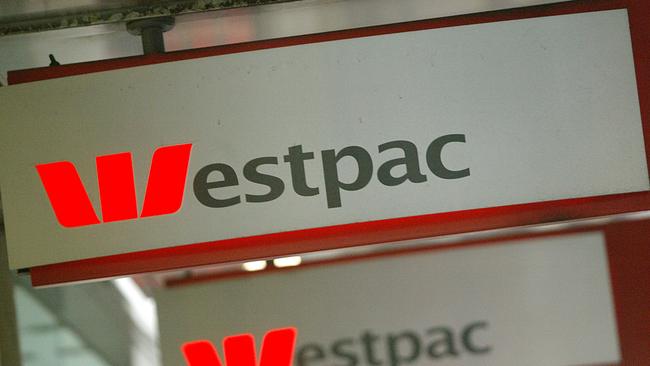Westpac in so deep it ‘fixed rate pricing’, QC tells court
Emails between Westpac executives and traders have revealed the level fruity language used on the bank’s floor.

Westpac was so financially exposed to a benchmark interest rate that it chose to manipulate the pricing instead of allowing the rate to emerge from legitimate trading in the bank bill market, the Australian Securities & Investments Commission has said.
“In effect, the tail was wagging the dog,” Philip Crutchfield QC, for the markets watchdog, told the Federal Court.
ASIC opened its landmark case yesterday against Westpac, the remaining major bank to face allegations of market manipulation after ANZ Bank and National Australia Bank negotiated nearly $100 million in combined settlements, by playing a series of taped conversations, many featuring the group’s top trader, Colin “The Rat” Roden.
ASIC alleges the bank’s traders tried to move the benchmark rate to suit the banks’ commercial interests, potentially at the expense of borrowers who paid interest rates tied to it.
Mr Crutchfield said Westpac’s traders used sober and “not so sober” language to discuss strategies for the daily rate-set period.
He said “f..king” the rate was a “chameleon-like” word, but in the context of ASIC’s case, it clearly meant manipulate.
Tapes and emails also contained references to “push the rate set higher’’, “dish it out so it moves higher”, “run over by the bus”, “trashing it”, and “shenanigans”, all of which allegedly showed Westpac’s true intentions.
ASIC’s case that the “sole or dominant” purpose of Westpac’s trading in the bank bill market was to manipulate the bank bill swap rate comes at a sensitive time for the banks.
The industry is exposed to a febrile political environment, both at a federal and a state level.
Canberra has imposed a $6.2 billion levy on the industry and has launched a crackdown on misconduct by executives.
While ANZ and NAB have negotiated settlements, admitting they “attempted” to manipulate the BBSW, a successful prosecution of Westpac for rigging a benchmark rate used to price loans and other financial products could convince the Turnbull government to reverse its opposition to a royal commission.
Mr Crutchfield also led evidence of minuted meetings of the Australian Financial Markets Association, where the member banks, including Westpac, were shown to be aware of the potential to rig the BBSW.
The AFMA minutes refer to “the potential for panellists (members) to be able to influence rate sets to their own advantage”.
An August 3, 2012 email from Mr Roden to AFMA went through a list of Westpac balance sheet items that were affected by the rate-setting mechanism.
They included more than $50bn in liquid assets, $50bn in corporate loans, $120bn in wholesale funding, $310bn in mortgage loans and $300bn in deposits.
“Our exposures are extremely broad and significant,” Mr Roden said.
Mr Crutchfield also said the number of BBSW-referenced products, including derivatives, had significantly increased in the relevant period, making the temptation to manipulate the rate even greater.
Westpac, furthermore, “substantially controlled” the 30-day bank bill market in the period under examination from April 6, 2010 to June 6, 2012.
On 91 days in 2010, for example, Westpac bought all the available 30-day bills, and on a further 100 days in 2011.
Internal Westpac communications also highlighted the vulnerability of the BBSW to manipulation, according to Mr Crutchfield.
He read an email from Mr Roden to Westpac executives, which said you can “put your entire net worth on the fact the rate-set will be out of control” when a contract was set from a “once-off BBSW rate set”.
“We can look at this two ways,” Mr Roden said in the email. “We are in a very competitive position to arrange this and will probably make a heap of money.
“Downside is (a) BBSW gets recast to something akin to LIBOR (the benchmark British rate, the London Interbank Offered Rate) and (b) I go to jail, That would be very bad.
“(2) It is a bad thing as BBSW may set way too high, as this is always the market weak side.”
Mr Roden said later in the same email that his staff were very conscious they represented Westpac and would hurt its reputation if they engaged in “errant behaviour”.
“Personally, I have no (intention) of seeing my face on the front page of a newspaper because of alleged market rigging or manipulative behaviour,” he said.
Mr Crutchfield said Westpac would win the case if it could prove it had another purpose for its trading. For example, if its sole or dominant purpose had been to hedge, then its trading would be legitimate.
While conceding that point, Mr Crutchfield alleged Westpac had tried to resubmit conversations in a different, or innocent, light.
He said some of those reconstructions “frankly defy credulity”. For the first time yesterday, the tape of Mr Roden saying he “f..ked” the rate was played in public.
“I know it was completely wrong, but I though f..k it, I might as well f..k it,” he said.
ASIC is likely to finish its opening today, after which Westpac will open its defence.


